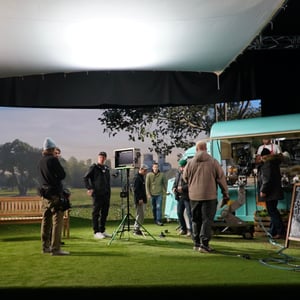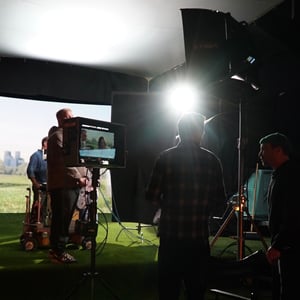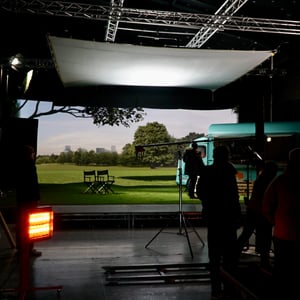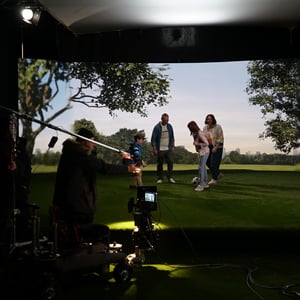The advertising and film & TV production industries have a pretty bad rep for being notoriously unkind to the environment. The BFI has highlighted that:
“The film production industry produces significant emissions and requires systemic change to reach net zero carbon emissions and to be environmentally sustainable.”
We have a responsibility as filmmakers to regulate our impact on the planet, and there are plenty of small changes we can all make to our ways of working that can help us do this. Here’s a few of the sustainable film production practices we’ve been putting in place to reduce the carbon footprint and negative impact of our productions…
MINIMISING TRAVEL
One of the biggest culprits of CO2 emissions in production is travel, so minimising the amount of driving and flying involved in our productions can be massively impactful. This could look like:
- Building relationships with/regularly hiring local crew and suppliers
- Tracking your transport emissions and offsetting them using an emissions calculator like this one from AdGreen
- Remotely hosting castings, presentations and other meetings that don’t need to be in-person
- Choosing hybrid or electric vehicles - in production for The Woman in the Window (2019), 1.24 metric tons of CO2 emissions were saved through the use of hybrid vehicles alone


FOOD ON SET
Feeding crew can be one of the largest contributors to on-set waste - managing this in the pre-production process can be as simple as:
- Planning ahead when buying food or booking catering to avoid over-buying
- Selecting more plant-based food options
- Purchasing long-lasting reusable tableware to avoid wasting single-use plastic cutlery and paper plates
- Distributing leftover food amongst crew after shoots; if there are still leftovers, these can be taken to local shelters, or non-perishables can be donated to food banks
VIRTUAL PRODUCTION
Virtual production is an increasingly popular and sustainable alternative to set building and location shooting. Combining physical and virtual filmmaking, VP involves shooting against photorealistic 3D sets displayed on large LED screens - this method of filming has already been used successfully across huge productions like The Mandalorian, Loki and Dune.
By reducing the need for single-use sets, surplus props and travel to and from global locations, virtual production allows for eco-friendly compromises to be made on set, without compromising the quality of the output. It can also cut down the time needed to shoot productions, with less days on set equating to less food/plastic waste, plus lower energy consumption and travel emissions.


REDUCE SINGLE USE PLASTICS
Any runner who’s taken out the bins on set will know the excess of plastic water bottles that get used and thrown out on a daily basis. Unnecessary plastic waste can easily be avoided by:
- Investing in reusable bottles, coffee cups and tableware for production teams can break the buying & throwing cycle of plastic
- Asking crew via the call sheet to bring their own refillable bottles and cups
- Setting up clearly labelled recycling stations on set to help redirect any single-use plastics out of landfill (setting recycling targets for production teams can be a great way to incentivise recycling too)
TRAIN STAFF ON SUSTAINABLE PRACTICES
The best way to ensure that green production practices become a staple of your work is to train your team! Educating production staff on sustainable methods ensures that everyone is onboard and working toward the same goal. You can do this by:
- Partnering with green organisations to run sustainability workshops and learning sessions
- Incentivising green practices with rewards for staff/crew who are going above and beyond in their sustainability efforts
- Employing or appointing a sustainability officer, who takes responsibility for implementing eco-friendly ways of working
- Provide staff with access to sustainability guides/resources like the ones below:
Sustainable Arts - Tools for Making Cultural Work More Sustainable
Albert - Sustainable Production Handbook for Individual Roles